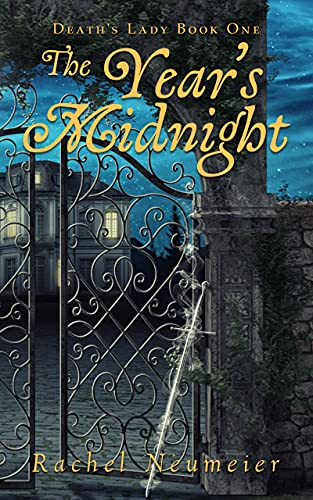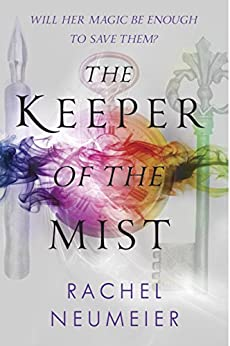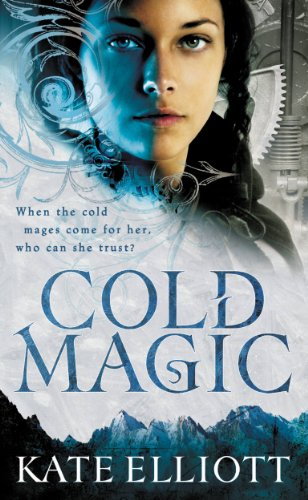Writing Good and Evil Characters
From Writer Unboxed, a matched pair of posts by Dave King: The Search for Faith and Goodness and Getting to Know Evil.
What a great idea for post topics! I mean, sure, morally ambiguous protagonists can be fantastic — for me it depends on the, ah, flavor of ambiguity, so that I absolutely love Nicholas Valiarde and particularly, in the later series, his daughter Tremaine. They’re ruthless, but also Nicholas goes to a lot of trouble to save Inspector Ronsarde and of course Tremaine goes to even more trouble to save Ile-Rien. Come to think of it, so does Nicholas again in that series. And all of this is totally believable: both the ruthlessness and the self-sacrifice.
But let’s by all means take a look at characters who are much less ambiguous. Let’s start by taking a look at each of the posts linked above.
Here’s what King says about writing a good character:
What makes it even harder is that, to write goodness effectively, you have to be a good person yourself – to face your own doubts or fears and yet have the internal drive to do the generous, self-sacrificing, loving thing. A lot of more ordinary writers, faced with writing good people, fall back on a less challenging alternative: Writing about faith.
And, wow, I’m immediately skidding to a halt. I don’t think that is true. I don’t think either part of that is true!
I mean I was going to go ahead and point to one or two characters of my own who are genuinely good people, and this sort of assertion makes that tough. Fine, I’m going to just flatly disagree:
You don’t have to be a genius to write a genius protagonist, you don’t have to be an exceptionally good person to write a protagonist who is an exceptionally good person, and you thankfully do not need to be thoroughly evil in order to write a thoroughly evil antagonist. I am indeed going to point to examples of each in my writing, so there, but I will pull out great examples of both good and evil characters from other people’s books as well. I’m not having any trouble thinking of examples, in fact, and I would bet that you aren’t either.
I’ll pause to add, I also vehemently disagree that most or even many writers write about faith as a shorthand for writing a protagonist who is a genuinely good person. That may be true in Christian literature, I’m not sure, but in SFF? Absolutely not. That is by far the exception rather than the rule. King’s assertion makes me think that he must write Christian literature because I doubt very much that conflation of “good” with “faith” is at all common in any other branch of literature. Let me just check his Bio. Oh! He’s not a novelist at all. He’s an editor. Well, he may have seen this sort of conflation in the books clients show him, but out in the world of published literature? I don’t think so.
Agree / disagree? Have any of you seen this particular thing, with authors using explicit religious faith to signal that their characters are good people? I think it’s far more often the reverse: explicitly religious people are shown as narrow-minded bigots 95% of the time.
What about the other post, the one about writing evil characters?
But to write believable evil characters, you have to get inside their minds. Anyone who gives advice on writing will tell you that you have to humanize your bad guys for them to be effective — cartoon evil is no more interesting than cartoon good. But writers also need a warning about just how painful it can be to enter an evil mind.
I picked that paragraph to quote largely because I want to disagree with it, thus paralleling my disagreement with the first post. You CAN humanize your Evil Antagonist; that’s okay. That’s one way to handle that character. You CAN set out to understand him. But that’s not actually necessary. You and your readers already know that people can be selfish, ambitious, indifferent to the wellbeing of others, and so on. I don’t believe you need to go out of your way as a writer to point to those traits. They come through clearly enough in the antagonist’s actions. And certain kinds of villains work best when they are left rather mysterious.
Daniel, in the Death’s Lady trilogy, is a genuinely good person.

He’s kind, empathic, charitable, and just a good person. He’s a lot nicer than I am, I will add Also, you’ll notice that there wasn’t the slightest need to write about religious faith in order to write a character who is genuinely good.
And you know, now that I think of it, you could make a case for Mitereh also being a genuinely good person too. He sure is committed to keeping Talasayan peaceful and in handing down rulings that are merciful as well as just. But as a king, he has no choice but to be ruthless at times, which is not the case for Daniel.
The villain in the Death’s Lady trilogy is one of the more human and normal villains I’ve ever written, very different from the terrifying Lilienne in The City in the Lake or the creepy, inhuman Wyvern King in The Keeper of the Mist.

And this is why I disagree that you need to humanize or understand your evil antagonist. You do not. Lilienne is super-creepy and no one understands her. I mean, she’s probably driven by a desire for power? At least in part? Sort of? But that sure doesn’t do much to explain her or what little we know about her uber-creepy plans. Same with the Wyvern King. Sure, we had more human bad guys in The Keeper of the Mists too. I’m not saying that understandable evil is not effective; of course it is. I’m just pointing out that mysterious, eerie antagonists that the reader will never understand can also be effective.
In contrast to that kind of creepy antagonist, the Death’s Lady villain definitely is understandable in ordinary human terms. Selfish; ambitious; deceitful; indifferent to and therefore willing to use other people; intolerant of opposition. There was no need for any character to point to the villain and say any of that. It’s obvious that’s what he’s like. This is an understandable, human bad guy. But I found it pretty easy to write him specifically because I never tried to get too close to him, far less force the reader to get close to him. Getting right into his head isn’t necessary to know pretty much what kind of person he is, and that’s great, because who wants to spend time with that guy? No one, that’s who.
So! Genuinely good and thoroughly evil characters. I’ve got a couple candidates for both categories.
Kit, in From All False Doctrine. Kit is one of the most genuinely good protagonists I can think of. Is he a little too good to be true? Maybe. But Degan makes him perfectly believable. Also a particularly good example because Kit is a priest and yet no one would argue that the author is just pointing at the trappings of religious faith and saying, See, he’s a good person! No, Kit really IS a good person, and therefore this is an example of how to handle faith well in a fantasy novel. Here are my comments about this book.
Mouse/Ryou/Ari in the Phoenix Feather series. She’s this very powerful martial artist for a lot of the story, and how many bad guys does she kill during the entire quadrilogy? Anybody remember? One, that’s right, and she felt awful about it and never killed anybody else. Remember how she wouldn’t escape after the Emperor caught her because she’d have to kill the prison staff? Yes, a little too good to be true, but again, Smith makes Ari a believable character. Good contrast to the above because this is a story where people argue about morality and right action and so on, but not at all with reference to Christianity or anything that I think Dave King would call faith.
How about evil characters?
I’m just going to pick out one series here: the Spiritwalker trilogy by Kate Elliot.

I don’t have to look farther afield because this trilogy is practically a showcase of different types of villains: the creepy, terrifying, powerful bad guy who isn’t really understandable; the arrogant noble who thinks he has a right to dispose of people as he sees fit; and most of all James Drake, who is the most human and understandable and also definitely the most hateable. Here are my comments about this series; you’ll see I said at the time that even though this series has a lot of great stuff and the protagonist is good and I love the feathered people and on and on, the villains are particularly outstanding. It’d be interesting to argue about which of the villains/antagonists is the most evil. I’d go for Drake, so maybe there is something to the idea of being able to relate to or understand a bad guy in order to make him really bad, or at least have readers perceive him as really bad.
All right, not crazy about novels that compel the reader to spend time with evil characters, but if a particularly good example of a good character leapt to your mind, please add that example in the comments!
Please Feel Free to Share:






The post Writing Good and Evil Characters appeared first on Rachel Neumeier.



